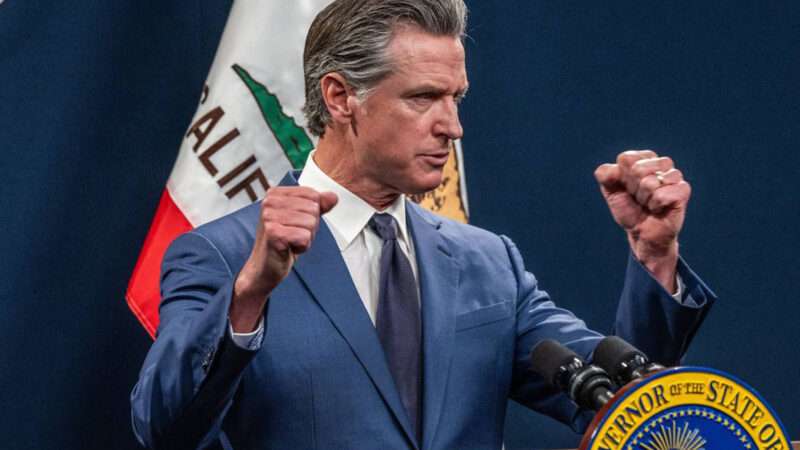
Both major American political camps are convinced that democracy is under attack by the other side, and they probably are both largely correct. There simply are different styles and approaches for thwarting the supposed will of the people—or at least for undermining the complex system that allows people to choose the way their nation is governed.
Our democracy may be the equivalent of "two wolves and a sheep voting on what's for dinner," as one aphorism puts it, but it's also "the worst form of government except for all those other forms," according to another. Our system certainly is flawed—laughably so at times—but I doubt most Americans would be pleased with the results if it were replaced by something more efficient.
In terms of attacking that system, we've seen one approach on vivid display. First, refuse to concede an election. Second, concoct an elaborate legal and political scheme to overturn the election results. Third, energize a ragtag mob to invade a public edifice and then, finally, spend years poisoning the public's faith in elections by peddling conspiracies and attacking opponents in intemperate ways.
We'll call that the "iron fist" approach. It's destructive, but is easy to recognize and understand: If we win, the People have spoken. If we lose, everything is rigged. If this sore-loserism ultimately tears down the constitutional order that protects our liberties and destroys the civic restraints that bolster that order, then so be it. It's a short-sighted power move driven by one person's whims.
But there's a longer-game, institutional approach that's equally destructive of democracy, but is dressed up in a way that's easier to overlook. We'll call that the "iron fist in a velvet glove." In this case, officials give grandiose lectures about democratic ideals, but quietly dominate the myriad levels of government power to advance their interests and quash dissent. It's insidious. Once in a while, however, the natives get restless and officials are forced to remove that velvet glove.
We've seen the latter play out recently in California. Our state is dominated by Democrats, who control every statewide constitutional office and have supermajorities in the Legislature. In a democracy, that's just the way it goes sometimes. However, Californians aren't nearly so progressive when they vote on statewide ballot initiatives, which infuriates the majority party.
Many residents are tired not only of the endless tax increases—but of how little the public gets in services in exchange for nationally high tax rates. The media regularly reports on California residents and businesses who continue to flee the state in large numbers, and on various scandals involving the government's absurd misspending of public funds.
Enough is enough. The California Business Roundtable responded by collecting sufficient signatures for a November initiative that would have limited state and local governments' ability to raise taxes. The Taxpayer Protection and Government Accountability Act would have required voter approval for any tax increase passed by the Legislature and two-thirds approval for local tax hikes. It would have made it harder for agencies to impose "fees" by forcing them to classify them properly as taxes.
This, of course, would have hit the majority party (and its masters, the public-employee unions) where it really hurts: in the pocketbook. With most conservative-oriented initiatives, the majority has a variety of velvet-gloved anti-democratic tools in their toolbox. The Legislature might, say, fill the ballot with legislatively approved similar-sounding measures designed to confuse voters. The attorney general will write a horrifically biased title and summary.
This was too important for them to deploy subtlety. Last year after Gov. Gavin Newsom and lawmakers saw the tax-limiting initiative gathering steam, they filed a dubious legal challenge claiming that the changes went too far and amounted to a constitutional revision. The state Supreme Court recently agreed—and pulled the measure from the ballot, thus denying the state's Democratic-leaning voters a chance to weigh in.
Typically ballot measures are challenged after they pass, rather than preemptively removed from the ballot. But Newsom and Co. weren't about to take chances on having another tax revolt, of the sort that enacted property-tax-limiting Proposition 13 in 1978.
But consider this bare-knuckled action in the face of Newsom's pre-recorded State of the State speech, where he depicted California as a bastion of democracy: "We are presented with a choice between a society that embraces our values and a world darkened by division and discrimination." Right-wing anti-democratic forces are despicable, but at least they don't dress up their behavior with smarmy lectures.
The Legislature and Newsom also qualified two ballot measures to undermine the Taxpayer Protection Act had it passed and also make it easier to raise taxes in general. They're perfectly fine with Californians voting—but only on measures that expand the Legislature's ability to raise taxes. It certainly is amazing how quickly California's Democrats dispensed with the niceties as soon as the stakes got high.
This column was first published in The Orange County Register.
The post California Gov. Gavin Newsom Crushed a Ballot Initiative That Could Have Limited Tax Increases appeared first on Reason.com.



.png?w=600)



